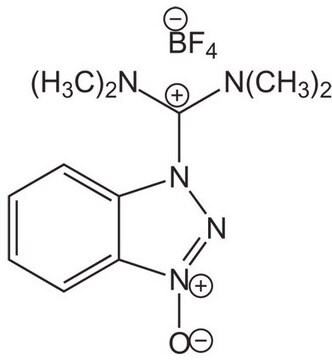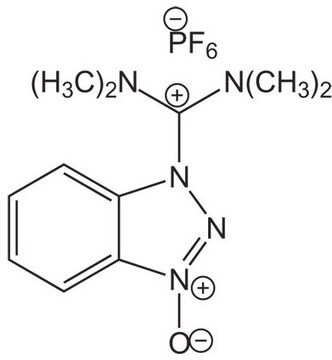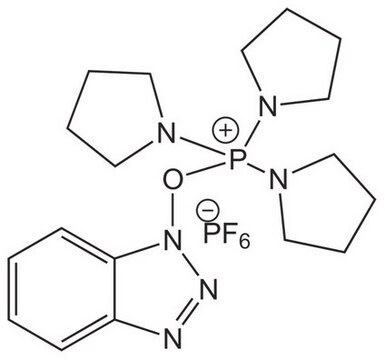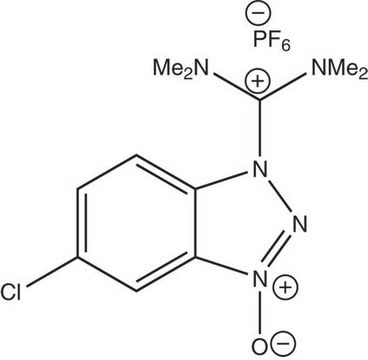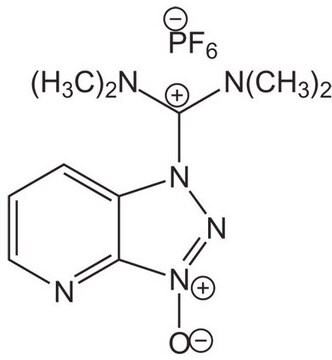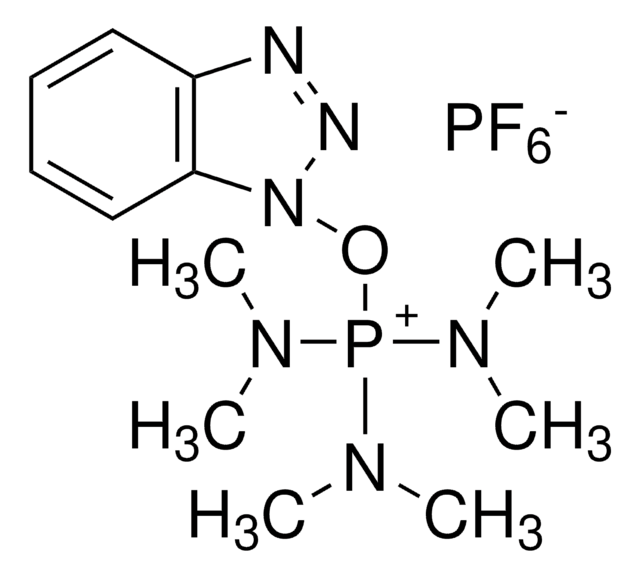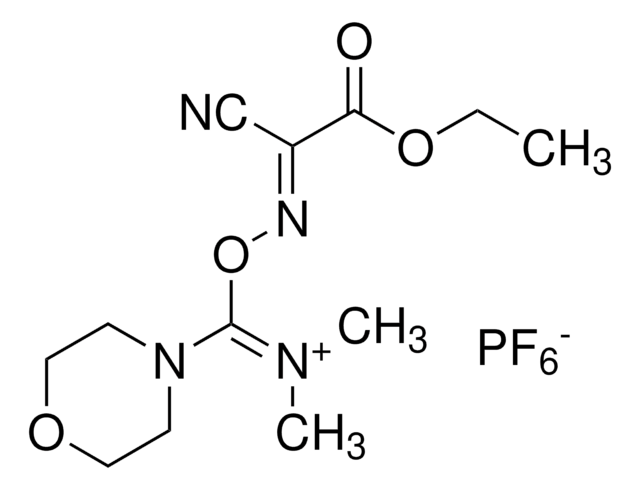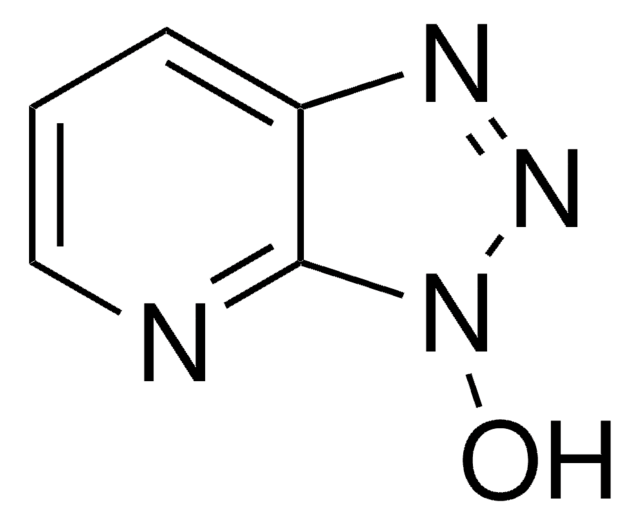12804
HBTU
≥98.0% (T), for peptide synthesis
Sinónimos:
N,N,N′,N′-Tetramethyl-O-(1H-benzotriazol-1-yl)uronium hexafluorophosphate, O-(Benzotriazol-1-yl)-N,N,N′,N′-tetramethyluronium hexafluorophosphate
About This Item
Productos recomendados
Nombre del producto
HBTU, ≥98.0% (T)
Nivel de calidad
Ensayo
≥98.0% (T)
Formulario
solid
idoneidad de la reacción
reaction type: Coupling Reactions
mp
200 °C (dec.) (lit.)
solubilidad
acetonitrile: 0.1 g/mL, clear
aplicaciones
peptide synthesis
grupo funcional
amine
temp. de almacenamiento
2-8°C
cadena SMILES
F[P-](F)(F)(F)(F)F.CN(C)C(\On1nnc2ccccc12)=[N+](/C)C
InChI
1S/C11H16N5O.F6P/c1-14(2)11(15(3)4)17-16-10-8-6-5-7-9(10)12-13-16;1-7(2,3,4,5)6/h5-8H,1-4H3;/q+1;-1
Clave InChI
UQYZFNUUOSSNKT-UHFFFAOYSA-N
¿Está buscando productos similares? Visita Guía de comparación de productos
Categorías relacionadas
Descripción general
Aplicación
Palabra de señalización
Warning
Frases de peligro
Consejos de prudencia
Clasificaciones de peligro
Skin Sens. 1A
Código de clase de almacenamiento
11 - Combustible Solids
Clase de riesgo para el agua (WGK)
WGK 3
Punto de inflamabilidad (°F)
Not applicable
Punto de inflamabilidad (°C)
Not applicable
Equipo de protección personal
dust mask type N95 (US), Eyeshields, Gloves
Elija entre una de las versiones más recientes:
¿Ya tiene este producto?
Encuentre la documentación para los productos que ha comprado recientemente en la Biblioteca de documentos.
Los clientes también vieron
Artículos
The special need of SPPS for rapid and highly efficient coupling reagents led to the development of several new reagents starting from BOP (Benzotriazol-1-yloxytris(dimethylamino)phosphonium hexafluorophosphate).
COMU is a non-explosive coupling agent suitable for solution phase & solid phase peptide synthesis. Its activity meets or exceeds that of HATU and its water-soluble by-product are easily removed.
Nuestro equipo de científicos tiene experiencia en todas las áreas de investigación: Ciencias de la vida, Ciencia de los materiales, Síntesis química, Cromatografía, Analítica y muchas otras.
Póngase en contacto con el Servicio técnico


